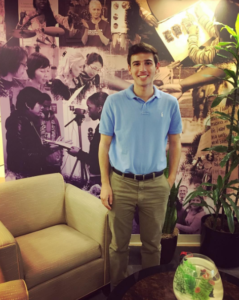
On the Importance of Caring
This summer, I worked at the Boston Area Rape Crisis Center as their Emergency Services Intern. I completed a five-hour long hotline shift weekly and provided administrative support to the Hotline and Medical Advocacy programs.
I began my internship with a 40-hour training, after which my peers and I became certified Rape Crisis Counselors. As part of our training, we completed a self-care checklist. The assessment was broken down into five categories: physical self-care, emotional self-care, professional self-care, psychological self-care, and spiritual self-care. The assessment asked how often I made time for reflection, meditated, wore clothing I liked, gave myself positive affirmations, and much more.
Who knew self-care was so extensive? Here I was, thinking I was pretty good at caring for myself because I ate healthy foods, showered daily, and drank soothing tea before bed. Suddenly, for the first time, self-care became an essential component of my professional life.
Self-care is important not only because you’re worth it, but because the happier and healthier you are, the better equipped you will be to serve others. This becomes vital if your job involves engaging in direct service–in my case, speaking on the phone with survivors of sexual violence. In the short term, direct service work can lead to compassion fatigue. In the long term, it can have more serious impacts like vicarious trauma.
During my weekly hotline shift, I mastered different self-care strategies and found the ones that worked for me. It turned out to be a combination of older strategies (preparing and drinking tea, journaling) and newer ones like drawing. As I became better and better about my self-care strategies, I was more effective in the support I provided. As the summer rolled by, I realized that mastering your own self-care will not only equip you to better serve your clients; it will also contribute to a supportive workplace culture.
BARCC exemplifies a caring workplace culture. My supervisors and coworkers occasionally made time to discuss topics unrelated to work. My coworker Suri brought in a beautiful bouquet of flowers one week to display on the communal table. I observed coworkers regularly giving one another positive affirmations and public “shout-outs” to show their appreciation for one another’s hard work. My coworkers at BARCC not only emphasized the importance of caring for oneself; they actively cared for one another.
My summer at BARCC has earned me a stronger administrative background and exposure to direct service work. But the lesson I wasn’t expecting was a deeper understanding of care. Caring for myself is not self-indulgence; it’s smart. And as we care for ourselves, we find it easier to care for one another.




